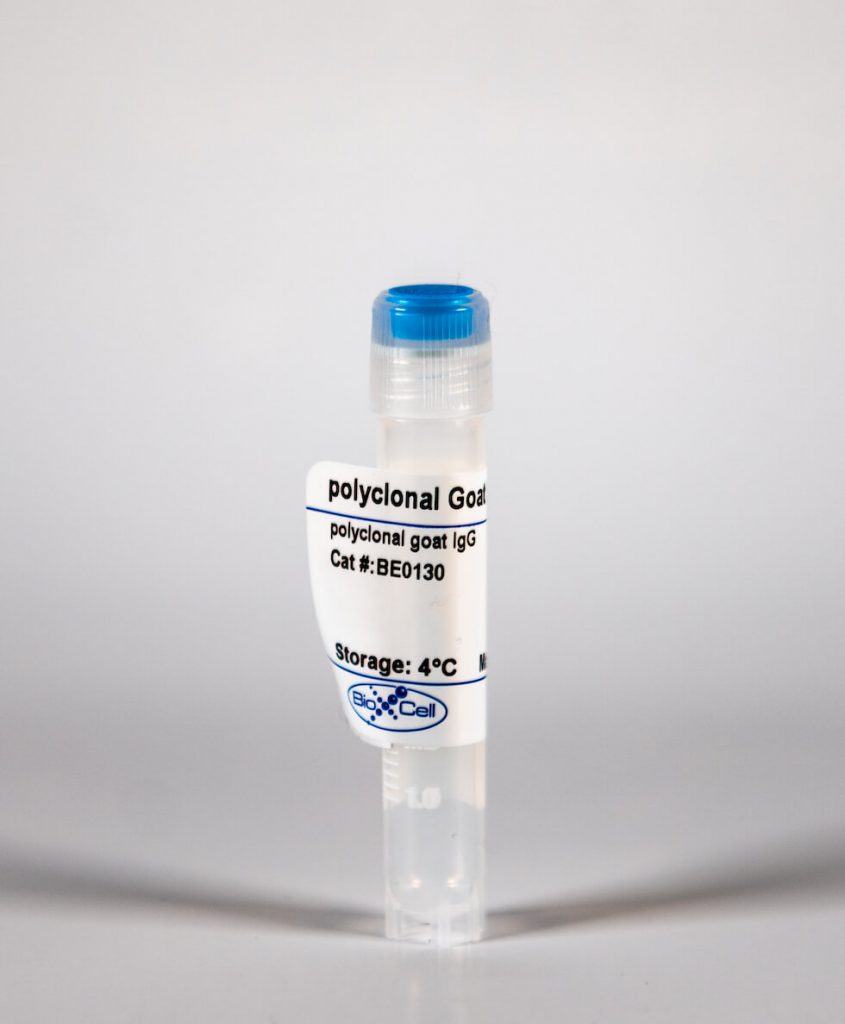InVivoMab polyclonal goat IgG
| Clone | N/A | ||||||||||||
|---|---|---|---|---|---|---|---|---|---|---|---|---|---|
| Catalog # | BE0130 | ||||||||||||
| Category | InVivoMab Antibodies | ||||||||||||
| Price |
|
The polyclonal goat IgG is purified from goat serum. It is ideal for use as a non-reactive control IgG for goat IgG antibodies in most in vivo and in vitro applications.
| Isotype | Goat IgG |
| Recommended Dilution Buffer | InVivoPure™ pH 7.0 Dilution Buffer |
| Formulation |
|
| Endotoxin |
|
| Purity |
|
| Sterility | 0.2 μM filtered |
| Production | Purification from goat serum |
| Purification | Protein G |
| RRID | AB_10949067 |
| Molecular Weight | 150 kDa |
| Storage | The antibody solution should be stored at the stock concentration at 4°C. Do not freeze. |
InVivoMAb polyclonal goat IgG (Clone: Goat IgG)
Carretero, R., et al. (2015). "Eosinophils orchestrate cancer rejection by normalizing tumor vessels and enhancing infiltration of CD8(+) T cells." Nat Immunol 16(6): 609-617. PubMed
Tumor-associated eosinophilia is frequently observed in cancer. However, despite numerous studies of patients with cancer and mouse models of cancer, it has remained uncertain if eosinophils contribute to tumor immunity or are mere bystander cells. Here we report that activated eosinophils were essential for tumor rejection in the presence of tumor-specific CD8(+) T cells. Tumor-homing eosinophils secreted chemoattractants that guided T cells into the tumor, which resulted in tumor eradication and survival. Activated eosinophils initiated substantial changes in the tumor microenvironment, including macrophage polarization and normalization of the tumor vasculature, which are known to promote tumor rejection. Thus, our study presents a new concept for eosinophils in cancer that may lead to novel therapeutic strategies.






